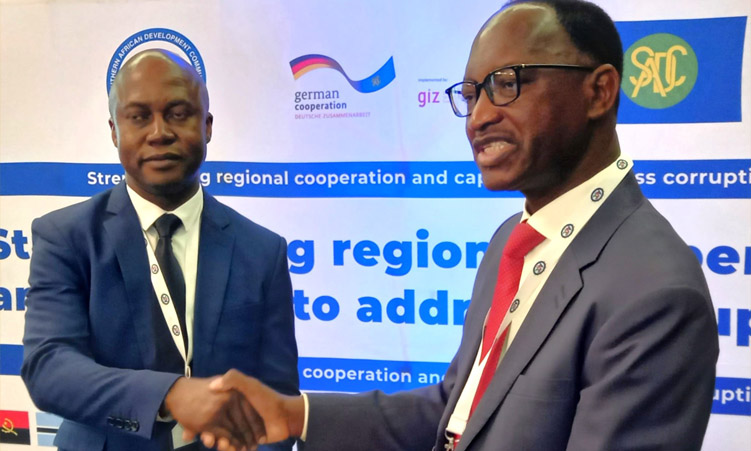Erongo governor Neville Andre said fighting corruption is a shared responsibility across all branches of government – the legislature, executive and judiciary.
He was speaking at the Southern African Development Community (SADC) heads of anti-corruption agencies’ three-day workshop that started at Swakopmund on Wednesday.
“The effective fight against corruption is a prerequisite to the successful implementation of governance policies,” Andre said.
He added that Namibia has ratified international anti-corruption protocols and enacted pivotal legislation like the Prevention of Organised Crime Act of 2004 and the Financial Intelligence Act of 2007.
The SADC Protocol Against Corruption, African Convention on Preventing and Combating Corruption, United Nations Convention Against Corruption and the Convention Against Transnational Organised Crime are among the regional and international instruments ratified by Namibia.
Despite this, SADC director of organ on politics, defence and security affairs Kula Theletsane warned of a disconnect between international conventions and real-world enforcement, indicating the existence of “troubling cases in our countries”
.
“Our nations and citizens have high expectations on your leadership to effectively apprehend and prosecute corruption,” he said, urging SADC member states to coordinate their anti-corruption efforts.
He also urged for “all levels of sophistication to manage the equally sophisticated methods used by the corruptors”.
“Corruption is indeed a cross-border crime that hinders economic development,” said Andre, drawing from a report by a high level panel on illicit financial flows (IFFs) which noted that Africa loses more than US$50 billion annually due to IFFs.”
Namibia Anti-Corruption Commission director general Paulus Noa highlighted the need for joint efforts due to corruption’s far-reaching impact on other illicit activities like money laundering.
“No country, no institution can single-handedly succeed in fighting corruption,” he said.



Leave a Reply